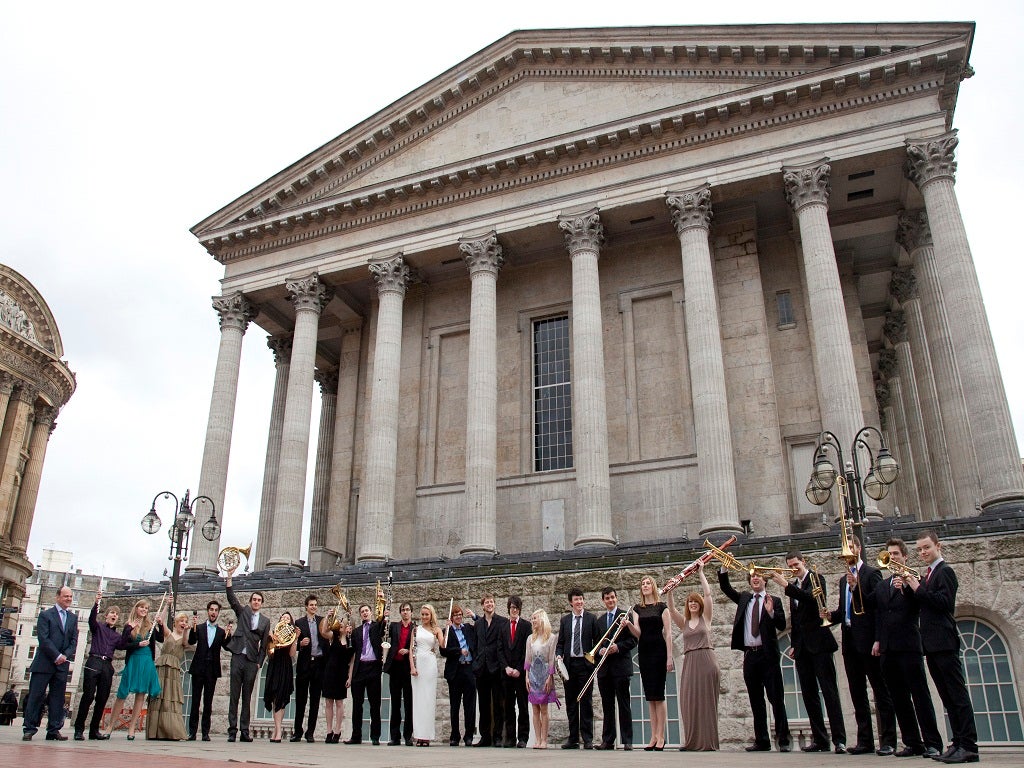Birmingham Conservatoire

History: Began life in 1859 as a department of the Birmingham and Midland Institute and was formally constituted as the Birmingham School of Music in 1886. The School became a part of the former Birmingham Polytechnic in 1971 whilst retaining conservatoire status, and remains part of Birmingham City University to the present day. 1989 saw the formal inauguration of the School under the name of Birmingham Conservatoire.
Address: Smack bang in the centre of Birmingham and in the cultural heart of the city, a few minutes walk from Town Hall and Symphony Hall.
Ambience: Feels and functions like an independent music college, but is also part of a major university. The atmosphere is warm and welcoming and students can also make use of Birmingham City University's other facilities, should they so desire.
Who's the boss? Principal Professor David Saint, organist and director of music at St Chad's Cathedral, took up his position in December 2010.
Prospectus: 0121 331 5901, alternatively take a virtual tour of the campus and facilities here.
CUKAS code: B34
WHAT YOU NEED TO KNOW
Easy to get into? Performance at audition is what counts. Students usually need two A-level passes (or equivalent) and Grade VIII Distinction in their instrument of choice.
Vital statistics: Around 600 students (including undergrads, postgrads and research students). Teaching in a wide range of options including solo performance, composition, chamber music, orchestral playing, music technology and jazz. Students on the four-year BMus (Hons) are encouraged to spend time studying in Europe on the ERASMUS scheme. There's also a BSc (Hons) in Music Technology offered as a 3-year course (as opposed to BMus specialising in Music Technology which is 4 years like all BMus) along with Birmingham City University’s School of Digital Media Technology.
Added value: The conservatoire is a major concert venue, putting on around 300 events a year. Top teaching and performing facilities include the 520-seat Adrian Boult Hall, the state-of-the-art recital hall, six recording studios and a specialised music library with around 8,000 books, 100,000 individual scores and parts and 12,000 sound recordings. Plans are in the pipeline for the relocation of the conservatoire to a brand new, purpose-built city centre site. Most tutors are active professional musicians. With nearly 200 visiting specialist tutors, there's roughly one member of staff for every two students.
Teaching: Up to scratch, according to a QAA audit in 2005; students praised the 'warm and friendly atmosphere and the accessibility of staff'.
Research: Performance and composition are the conservatoire's raison d'être, and research degrees focused on these areas have been offered since 1993. The 2008 RAE results judged 20 per cent of the conservatoire’s research as 'world class'.
Any accommodation? Yes - university-approved halls came in between £77 and £113 per week in 2013. The price difference means that rooms can vary wildly so be careful where you pick.
Cheap to live there? Not bad - rents locally were around £65 to £95 per week in 2013, so can be cheaper to go with a private landlord in a shared flat, rather than with university accommodation. Be aware though, bills and utilities are not included.
Transport links: Five minutes' walk from New Street station; 10 minutes' from Snow Hill. Birmingham is easy to get to and from.
Fees: Fees for those entering studies in 2013/14 will be £9000 per year.
Bursaries: A number of scholarships are offered, usually based on performance at audition. For details, see the website.
THE FUN STUFF
Nightlife: As part of Birmingham City University, musicians have access to the students' union's bars (one of which is at the conservatoire) and events. The bright lights of Birmingham offer everything from clubbing to curry.
Glittering alumni: Notables in just about every musical genre: opera singers Richard van Allan and Jean Rigby; vocalist Rhydian Roberts (of X-Factor fame); composer/singer Laura Mvula; composer/producer Raffertie (Ben Stefanski), rising star composers Charlotte Bray (commissioned for 2012 Proms) and Sam Bordoli; composer Brian Ferneyhough; guitarist and bassist Fred T Baker; jazz vocalist Sara Colman; CBSO principal trumpeter Alan Thomas; Hallé clarinettist Rosa Campos-Fernandez; organist Henry Fairs; folk musicians Joe Broughton and Jim Moray. Rising stars include David Quigley (piano); Alcyona Mick (jazz piano); David Chadwick (violin) and Nicola Wemyss (early music soprano).
Join our commenting forum
Join thought-provoking conversations, follow other Independent readers and see their replies
Comments
Bookmark popover
Removed from bookmarks